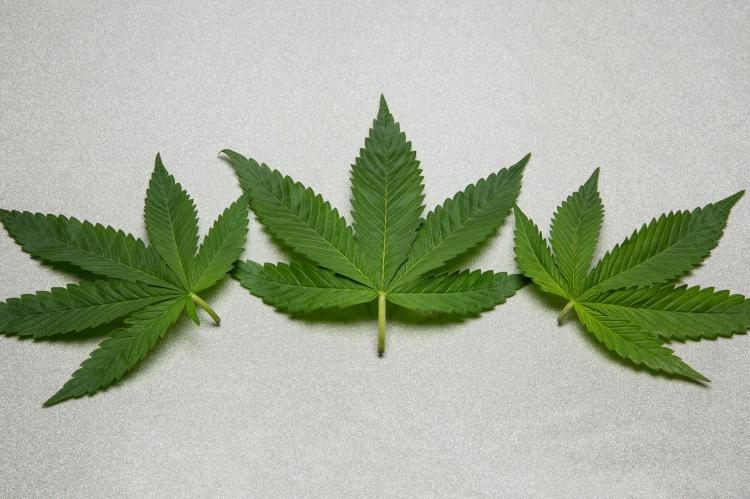Hemp-Based CBD Oil Won't Diminish THC's Popularity, Analysts Predict
Cannabis producers need not fret about hemp-based cannabidiol (CBD) products overshadowing demand for THC-oriented products, according to a leading cannabis industry think tank.
Despite the recent surge of CBD oil sales since hemp's legalization under the 2018 Farm Bill, its growth is expected to be limited compared with CBD products containing at least a small amount of THC.
A BDS Analytics white paper, “The Global Cannabinoids Market: Will CBD Overtake THC?” concluded that consumers are more likely to continue to purchase their CBD products at dispensaries, in part because they believe it's more effective when combined with THC, creating the entourage effect, or the collective cannabinoid and terpene profile of a plant working together to produce a greater experience than an isolated compound.
Authors of the white paper explained, “because the cannabinoid combination is only available for purchase within dispensaries, consumers seeking this effect will continue to make their cannabis-related purchases through the dispensary channel.”
While consumers are buying hemp-based CBD products in states in which cannabis is legal, some states don't allow CBD sales of any kind even though the federal government no longer classifies it as a Schedule 1 drug with the passage of the 2018 Farm Bill.
CBD extracted from hemp is legal if licensed growers follow federal and state regulations. According to the National Organization for the Reform of Marijuana Laws (NORML), more than a dozen states restrict sales of CBD oil only to patients with a prescription for medical conditions. South Dakota and Nebraska ban non-pharmaceutical uses of CBD, while Idaho allows pharmaceutical-grade Epidiolex and other CBD products only if they contain zero THC.
Consumer Reports surveyed 4,000 Americans to determine how CBD had affected their lives and noted that an estimated 64 million people have tried it. Of those, 1 out of 7 said they use it every day. Americans of all ages are using it, but it's most popular among those in their 20s — a substantial 40%. At least 15% of people 60 and older are using it, too.
Hemp-based CBD oil sales are projected to reach $12.6 billion in sales by 2024, while CBD sales from all cannabis plants are expected to reach a total of $20 billion — 10 times the $1.9 billion generated in 2018.
The BDS Analytics report said widespread CBD use “is likely to have a positive effect on the perceptions and attitudes towards cannabis overall.” The influence of dispensaries and the variety of forms of consumption they already provide, too, is expected to attract more consumers as cannabis legalization expands.
Currently, ingestibles, topicals, and inhalables are the top-selling CBD categories in stores, according to the BDS Analytics report, but in dispensaries consumers also buy CBD products in the form of concentrates and cartridges for vape pens. By 2024, BDS Analytics predicts that CBD will be distributed through primary retail channels, such as the internet, pharmacies, grocery stores, vitamin stores, and dispensaries, among other locations. It projects that the types of products sold will be influenced by the U.S. Food and Drug Administration's (FDA) regulation of CBD-infused products and beverages. Currently, CBD is popularly used for chronic pain and is believed to be a potent anti-inflammatory.
In California, CBD products are sold “everywhere,” according to a Los Angeles Times report, which lists essential oils, bath bombs, fruity tea-like beverages, and a variety of infused edibles for sale in restaurants and stores. The California Department of Public Health (CDPH) deems the industrial hemp-derived products, which are not intoxicants, as illegal because the agency follows federal rules; the FDA currently prohibits CBD as a food additive or dietary supplement.
However, CBD products derived from cannabis with the intoxicating THC are legally sold in dispensaries. The CDPH doesn't plan to cite any vendors, according to the L.A. Times report, but warns consumers to beware of unproven health claims.
Hemp-based CBD oil remains largely unregulated by the FDA, despite the passage of the 2018 Farm Bill, which removed hemp as a controlled substance.
While many consumers trust that CBD oil is safe, a 2017 University of Pennsylvania study found that up to 70% of CBD products sold online may be mislabeled. While industrial hemp generally has a THC level of less than 1%, the university study found that of 84 items studied, 18 had THC levels high enough to potentially cause impairment.
- Log in to post comments

